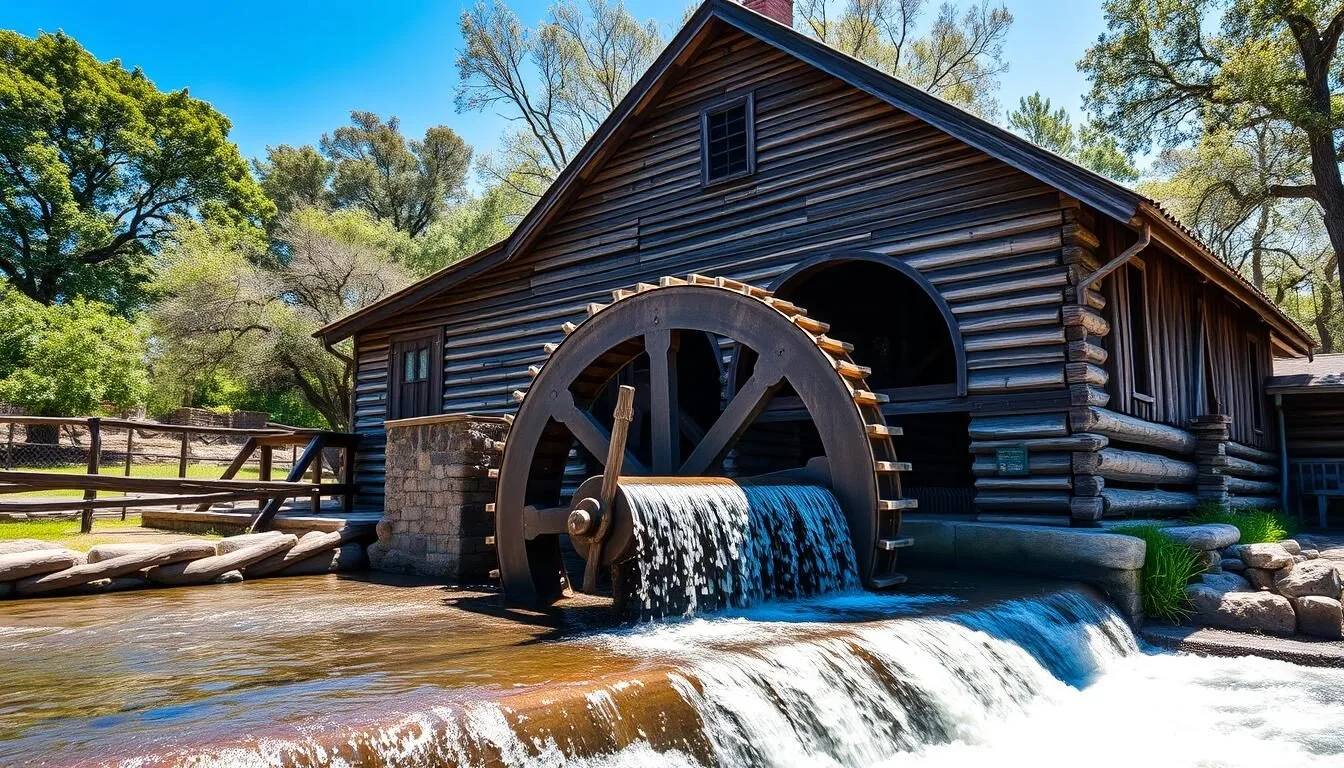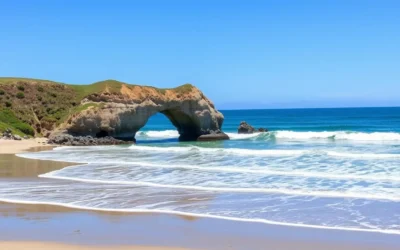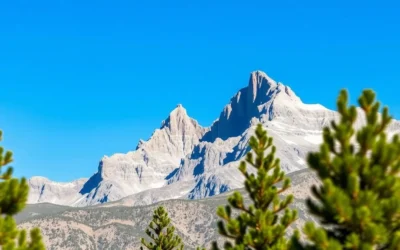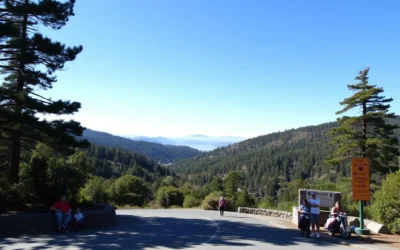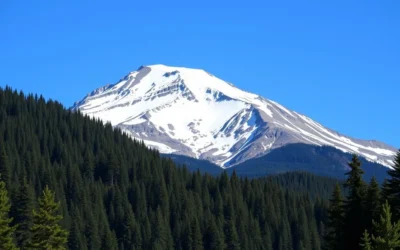Did you know that Bale Grist Mill is one of only two water-powered grist mills still functioning west of the Mississippi River? Built in 1846, this remarkable historic site continues to grind grain into flour every weekend using its original 36-foot water wheel and French Buhr millstones – just as it did over 175 years ago. This living piece of California’s agricultural heritage offers visitors a rare glimpse into the technology that helped build early American communities.
Getting There & Planning Your Journey
Bale Grist Mill State Historic Park is nestled in the heart of Napa Valley, located between St. Helena and Calistoga in northern California. The historic mill sits at 3369 St. Helena Highway North (Highway 29), making it easily accessible for visitors exploring wine country.
Ready to Visit Bale Grist Mill?
Find the best flight deals to nearby airports in San Francisco, Oakland, or Sacramento.
From San Francisco, the drive takes approximately 1.5 hours (120 km/75 miles) north via Highway 29. If you’re coming from Sacramento, expect about a 1.5-hour drive (113 km/70 miles) southwest. The park entrance is well-marked, though relatively small, so keep an eye out when driving along the highway.
Explore Napa Valley At Your Own Pace
Rent a car to easily visit Bale Grist Mill and other nearby attractions.
Best Time to Visit & Weather Tips
The Bale Grist Mill operates year-round, but your experience will vary depending on when you visit. The mill itself is only open for tours and demonstrations on weekends from 10:00 AM to 4:00 PM, with the last tour starting at 3:00 PM.
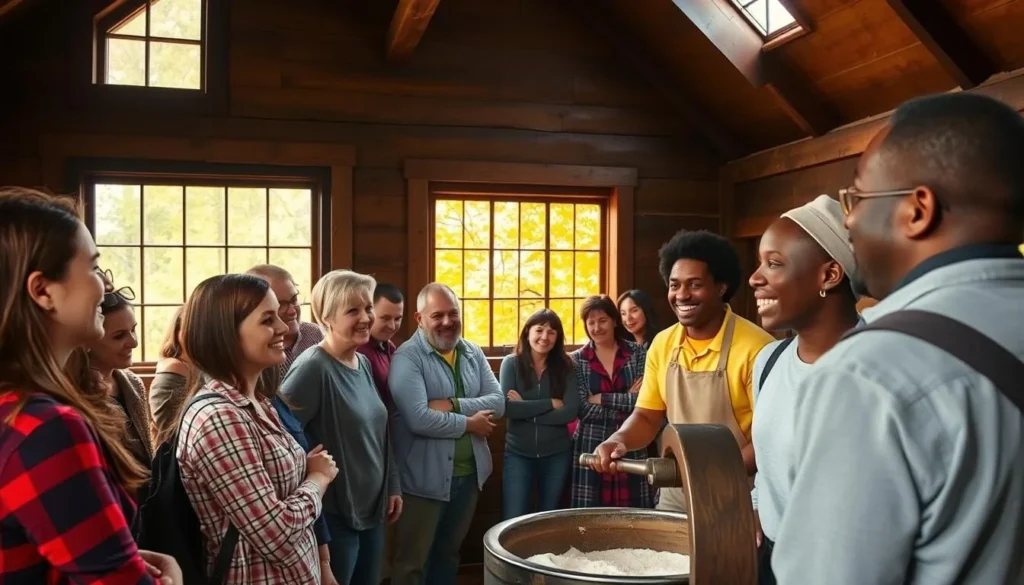
Recommended Months to Visit
Best Seasons:
- Spring (March-May): Pleasant temperatures of 18-24°C (65-75°F), wildflowers blooming, and less crowded than summer
- Fall (September-November): Gorgeous autumn colors, comfortable 21-27°C (70-80°F) temperatures, and harvest season activities
Months to Avoid:
- July-August: Peak summer heat can reach 32-35°C (90-95°F), making outdoor activities less comfortable
- December-February: Occasional rainy days may limit hiking opportunities, though winter visits offer a more solitary experience
For the best experience, aim to arrive early on weekend mornings when the mill is less crowded. The park is closed on Thanksgiving, Christmas, and New Year’s Day. Special events like harvest celebrations and living history days typically occur in fall, offering enhanced experiences with period costumes and additional demonstrations.
Getting Around Locally
The Bale Grist Mill State Historic Park is a compact site that’s easy to explore on foot. From the parking area, a short 0.4 km (0.25 mile) trail leads to the mill itself. While the path is relatively short, it does have some rocky and steep sections, so comfortable walking shoes are recommended.
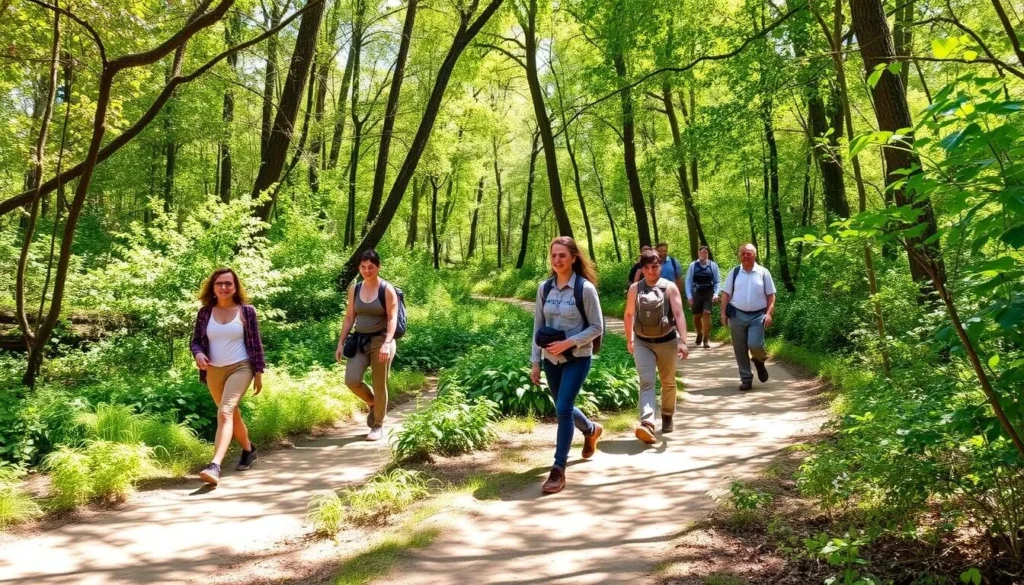
Local Transportation Options
- Personal vehicle: The most convenient option for accessing the park and exploring nearby attractions
- Hiking: The History Trail (2.4 km/1.5 miles round trip) connects Bale Grist Mill to neighboring Bothe-Napa Valley State Park
- Bicycle: The Napa Valley is bicycle-friendly, though Highway 29 can be busy with traffic
- Ride-sharing services: Available in the area but may have limited availability
For those wanting to explore beyond the mill, the History Trail offers a pleasant hike through the forest to Bothe-Napa Valley State Park. This moderate trail passes by the historic Pioneer Cemetery and White Church, the first church established in Napa Valley.
Where to Stay
While there’s no accommodation directly at Bale Grist Mill State Historic Park, the surrounding Napa Valley offers numerous lodging options to suit every budget and preference. Here are some recommended places to stay near the mill:

Find Your Perfect Stay in Napa Valley
Browse accommodations near Bale Grist Mill – from luxury resorts to cozy B&Bs.
Nearby Lodging Options
Camping & Cabins
Bothe-Napa Valley State Park (adjacent to the mill) offers camping sites from $35/night and yurts/cabins from $100/night, providing an immersive natural experience.
Mid-Range Options
St. Helena and Calistoga (both within 8 km/5 miles) feature charming bed and breakfasts and boutique hotels ranging from $150-300 per night.
Luxury Accommodations
The Napa Valley is renowned for its luxury resorts and spas, with properties like Meadowood and Auberge du Soleil offering premium experiences from $500+ per night.
Dining & Local Cuisine
While Bale Grist Mill itself doesn’t have dining facilities, you can purchase freshly milled flour and cornmeal from the mill’s gift shop to take home. For meals, you’ll find excellent options in nearby St. Helena and Calistoga, both just a short drive away.
Local Dining Recommendations
Casual Options
- Gott’s Roadside (St. Helena): Famous for gourmet burgers and milkshakes
- Model Bakery (St. Helena): Known for their exceptional English muffins and pastries
- Calistoga Inn Restaurant & Brewery: Casual pub fare with house-brewed beers
Fine Dining
- Farmstead at Long Meadow Ranch: Farm-to-table cuisine using locally sourced ingredients
- Solbar at Solage Resort: California cuisine with a focus on seasonal ingredients
- The Restaurant at Meadowood: Exceptional fine dining experience (reservation required)
Picnic Options
For a more budget-friendly option, consider bringing a picnic to enjoy at the designated picnic areas at Bale Grist Mill or neighboring Bothe-Napa Valley State Park. Stock up on provisions at:
- Oakville Grocery (historic gourmet deli with sandwiches and local products)
- St. Helena Farmers’ Market (Fridays, May-October)
- V. Sattui Winery (extensive deli and picnic grounds, though you’ll need to purchase their wine)
Attractions, Sightseeing & Activities
The main attraction at Bale Grist Mill State Historic Park is, of course, the historic mill itself. Built in 1846 by Dr. Edward Turner Bale, this remarkable structure offers a fascinating glimpse into 19th-century technology and daily life.

Explore Napa Valley’s Historic Treasures
Book guided tours and activities to enhance your visit to Bale Grist Mill and surrounding attractions.
Must-See Attractions at the Mill
Mill Tours & Demonstrations
Weekend tours (10 AM-4 PM) showcase the mill in operation, with knowledgeable docents explaining the milling process and history. Watch as grain is transformed into flour using 19th-century technology.
The Water Wheel
The impressive 36-foot water wheel was restored in 2020 and powers the entire mill through an ingenious system of belts, pulleys, and gears. It’s a remarkable example of sustainable power from the past.
Granary Museum
Explore exhibits on the mill’s history, tools, and local artifacts. The museum provides context about the mill’s importance to early Napa Valley settlers and agricultural development.
Historic Points of Interest
- Pioneer Cemetery: Final resting place of many early Napa Valley settlers
- White Church: The first church established in Napa Valley, named after founding Minister Asa White
- History Trail: A 2.4 km (1.5 mile) round-trip trail connecting to Bothe-Napa Valley State Park

Nature & Outdoor Experiences
Beyond its historical significance, Bale Grist Mill State Historic Park offers beautiful natural surroundings to explore. The park is situated in a picturesque wooded area with Mill Creek running through it, powering the historic water wheel.

Outdoor Activities
Hiking
The History Trail (2.4 km/1.5 miles round trip) connects Bale Grist Mill to Bothe-Napa Valley State Park. This moderate trail passes through dense forest, chaparral-filled clearings, and a riparian corridor along Mill Creek. It’s particularly beautiful in spring when wildflowers bloom and in fall when the leaves change color.
Birdwatching & Wildlife
The park’s diverse habitats attract a variety of bird species, making it a great spot for casual birdwatching. Keep an eye out for woodpeckers, jays, warblers, and hawks. You might also spot deer, squirrels, and other small mammals if you’re quiet and observant.
Nearby Outdoor Destinations
- Bothe-Napa Valley State Park: Offers 16 km (10 miles) of hiking trails, swimming pool (seasonal), and picnic areas
- Robert Louis Stevenson State Park: Features a 8 km (5 mile) hike to the summit of Mt. St. Helena with panoramic views
- Oat Hill Mine Trail: Historic 13.7 km (8.5 mile) trail with stunning vistas of Napa Valley
Practical Travel Tips
Planning your visit to Bale Grist Mill State Historic Park will be smoother with these practical tips and important information.
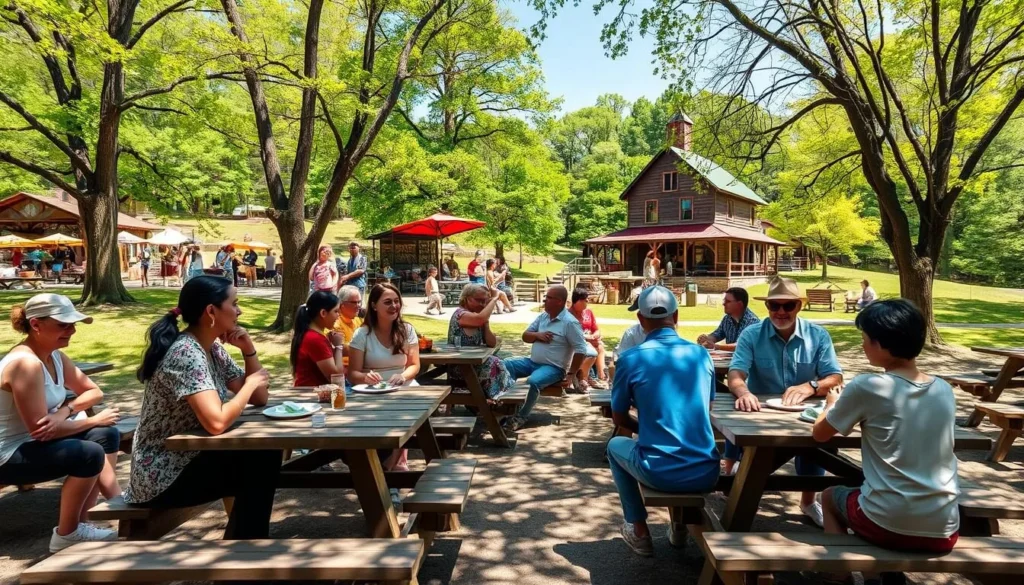
Hours & Admission
- Open: Saturdays and Sundays, 10:00 AM to 4:00 PM (last tour at 3:00 PM)
- Closed: Thanksgiving, Christmas, and New Year’s Day
- Admission: Adults $8, Children (6-17) $3, Children under 6 free
- Contact: (707) 942-4575 or StateParks@ncrposd.org
Facilities & Accessibility
- Parking: Available at the park entrance
- Restrooms: Located near the mill
- Drinking water: Available on-site
- Picnic areas: Several tables available for visitor use
- Accessibility: The mill itself is ADA accessible, though the trail to reach it has some steep and rocky sections
Park Rules & Safety
- Stay on designated trails at all times
- Pets are not allowed in the park
- Collecting or destroying anything in the park (including mushrooms) is prohibited
- Be respectful of historic sites and artifacts
- Bring water, especially during warmer months
- Wear sturdy shoes suitable for uneven terrain
Visitor Comments About Bale Grist Mill
“The mill tour was absolutely fascinating! Our guide was incredibly knowledgeable about the history and mechanics of the mill. Watching the giant water wheel in action and seeing how grain becomes flour was a highlight of our Napa trip. Don’t miss buying some freshly ground cornmeal to take home.”
“We combined our visit with a hike to Bothe-Napa Valley State Park, which made for a perfect day away from the wineries. The History Trail is beautiful, especially in fall when the leaves are changing. The mill itself is a remarkable piece of living history that our kids found surprisingly engaging.”
“A hidden gem in Napa Valley! While everyone else was wine tasting, we enjoyed this peaceful historic site. The volunteers are passionate about preserving this piece of California history, and their enthusiasm is contagious. The demonstration of the milling process was educational and entertaining.”
Step Back in Time at Bale Grist Mill
Bale Grist Mill State Historic Park offers a rare opportunity to connect with California’s agricultural past in a tangible, immersive way. As the massive water wheel turns and the millstones grind, visitors gain insight into the ingenuity and daily life of early Napa Valley settlers. Whether you’re a history enthusiast, nature lover, or simply seeking a unique experience beyond wine tasting, this historic park delivers an authentic glimpse into the technology that helped build California.
The combination of fascinating mechanical demonstrations, knowledgeable guides, beautiful natural surroundings, and the chance to take home freshly milled flour makes Bale Grist Mill a memorable addition to any Napa Valley itinerary. As you watch grain transform into flour using the same methods employed nearly two centuries ago, you’ll gain a deeper appreciation for the simple yet essential technologies that sustained communities long before the digital age.
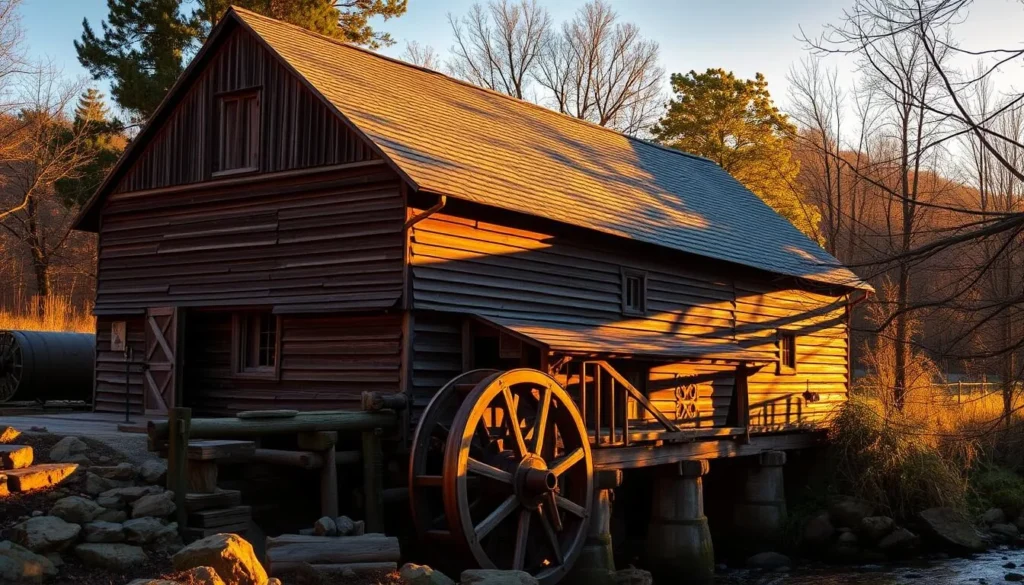
The above is subject to change.
Check back often to TRAVEL.COM for the latest travel tips and deals.
